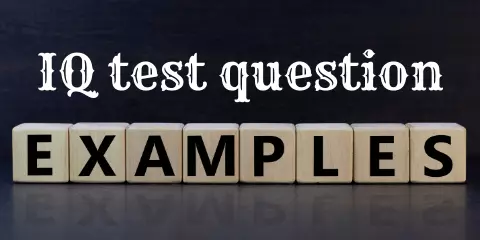There are several types of intelligence tests. Some were more popular in previous decades and some are more popular today. To understand how intelligence can be measured, one must first understand, what is intelligence in general.
What is intelligence?
Intelligence is the set of skills that can be used to solve problems that require thinking effectively. The origin of the word intelligence is in the Latin word intelligere, which means "to choose" or "to distinguish".
Most common definitions of intelligence revolve around the idea that intelligence is the ability to solve problems, understand new situations, or deal effectively with changing situations. The IQ of the population is normally distributed, the average (which is also the median) is defined as 100, and based on this definition the standard deviation is 15.
Intelligence also exists in other animals (though to a lesser extent than the human race). In recent decades there has also been an increase in AI (artificial intelligence), which represents an attempt by science to understand the characteristics of human intelligence and to assimilate it within machines and computers.
How is intelligence measured?
The accepted measure of intelligence is IQ (Intelligence Quotient) tests. IQ tests are a series of questions from different fields designed to quantify the intelligence of a particular individual.
Stanford-Binet test
The first IQ tests were developed by Alfred Binet and Theodore Simone in 1905 in France. Like many intelligence tests, their test, which in its modern version is called "Stanford-Binet", measures only the ability to solve problems of various kinds (verbal, quantitative, spatial, etc.) but does not address the whole personality of the person and his values.
Wechsler test
Wechsler tests separate different age ranges. There are tests for each age group separately: from a test for kindergarten children, elementary school children, and adults. According to Wechsler tests, intelligence is the ability of the individual to act purposefully, to think logically, and to deal effectively with the environment. Therefore, according to these tests, intellectual abilities are composed of specific skills that are independent of each other. For example, the verbal ability does not depend on executive ability and therefore there are separate scores for the test: verbal IQ, executive IQ, and general IQ.
In a slightly less formal way, it can be said that it is difficult to quantify intelligence. It is not like weight or height that can be accurately measured. In addition, there are factors that can affect the results of the exam (see article "Is it possible to increase your IQ").Therefore, even after receiving the test results, one should keep in mind that there is a standard deviation of 15 points up or down.
The IQ test of Brainalytics works in a much more innovative way. There is a database of hundreds of questions that have been tested on a large number of examinees, some of the questions are easy and some are very challenging. From these questions, we have selected the most accurate questions for our test, and thus succeed in measuring the entire range of intelligence of the examinees. In addition, the Brainalytics algorithm examines during the test whether the questions presented to the examinee are too easy or challenging for him and adjusts the following questions according to the subject's answers.
Discover your accurate IQ, and take Brainalytics' free IQ test →


